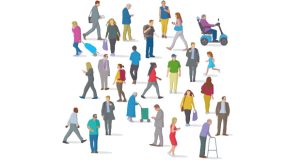Zip Water UK looks at how the wellbeing concept has well and truly infiltrated workplaces and what employers can do to ensure their drinking water supply is part of this
Living healthily has transformed over recent years, and the wider ‘wellness’ or ‘wellbeing’ concept is now increasingly popular. Much more than just eating your five a day and getting regular exercise, wellbeing applies to all aspects of daily living to take care of mind, body and soul. This may be more achievable for home-life, but wellbeing at work is hugely important to ensure a productive, happy workforce.
With its own accreditation in place, the WELL Building Standard, which assesses air, water, light, nourishment, fitness, comfort and mind, wellbeing has gradually moved up the agenda for employers and is being considered a priority at the build stage of a project. Studies have shown that employees who are happier and healthier are more productive and take fewer sick days, so it makes sense that more employers are investing in ways to ensure the comfort of their staff.
Modern offices are becoming more flexible, with light and space all considered – even ways to ensure workers move more – making working conditions comfortable, enjoyable and healthy. But in addition to the building itself, how can facilities managers maximise employee wellbeing?
WHY WATER MATTERS
One such detail is ensuring the inclusion of a filtered drinking water system. The UK Workplace Health, Safety and Welfare Regulations of 1992 (regulation 22) states that employers must provide an adequate supply of drinking water for all employees that is free from contamination, easily accessible and fit for purpose.
As well as the legal requirement is the simple fact that water is crucial to wellbeing. Even in a sedentary role, where we may not consider hydration to be as important as roles that include physical activity, the body loses water, and even slight dehydration can impact on brain function. In fact, just a one per cent drop in hydration can cause a 12 per cent drop in productivity.
But, whether you want a system that delivers filtered chilled water for instant refreshment and / or boiling water for that much needed cup of tea, there are certain considerations that need to be made before specifying a new product or system.
WATER QUALITY ENCOURAGES CONSUMPTION
Filtration makes all the difference, especially if you’re in a hard water area. Not only does it improve the taste and appearance of the water, but it helps the system live longer. An effective water filtration system will work to remove contaminants such as chlorine and sediments, and reduce the presence of pesticides, chemicals and bacteria.
Those businesses looking to achieve the WELL Building Standard will especially be looking for advanced filtration, as their water quality, contaminants, water testing and drinking water promotion are all assessed.
Filtration can either take place at the point where the mains water feeds into the building (can be expensive and often means unnecessary filtered water at washing-up points) or selectively at individual drinking water points.
One of the best methods of filtration available is to use a sub-micron filter, which removes particles, bacteria and even microplastics which have been found in tap water. For example, our popular HydroTap, which provides boiling, chilled and sparkling water includes the latest 0.2 micron MicroPurity filtration. This is significantly better than a standard water filter jug – 25 times better in fact – meaning users will be able to taste a big difference.
DON’T JUST TAKE THE MANUFACTURER’S WORD FOR IT
Alongside advanced filtration, it is important to look for trusted third-party accreditations, which confirm that you’re receiving the safest and highest quality drinking water on the market. These include:
- WRAS – The Water Regulations Advisory Scheme (WRAS) demonstrates that an item complies with the high standards set out by UK water regulations in 1999.
- RoHS compliance – shows a product has been manufactured to comply with the European Restriction of Hazardous Substances Directive 2002/95/EC.
- BREEAM certification – the Building Research Establishment Environmental Assessment Method (BREEAM) first published by the Building Research Establishment (BRE) in 1990, is the world’s longest established method of assessing, rating, and certifying the sustainability of buildings.
- Environmental Product Declaration (EPD) – an ISO standardised tool to communicate the sustainability of a product or system. This will be voluntarily developed, quality-assured and provides comparable information regarding the environmental performance of products.
Meeting all of these criteria may seem like quite a challenge when you may think that a kettle and a water cooler would suffice. But consider how long it takes to boil a kettle and how many hours are lost just waiting to make a hot drink. Equally, consider the impracticalities of having to buy and store water bottles for the cooler, not to mention the environmental impact of using single-use plastic.
TAP INTO THE BEST SOLUTION
Many workplaces are benefitting from specialist filtered boiling and chilled water taps. These products deliver pure-tasting water in an instant, allowing users to quickly access refreshing water to hydrate as well as boiling water to make hot drinks – with no waiting around.




